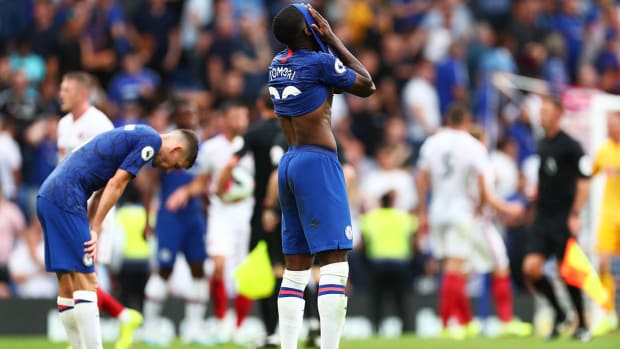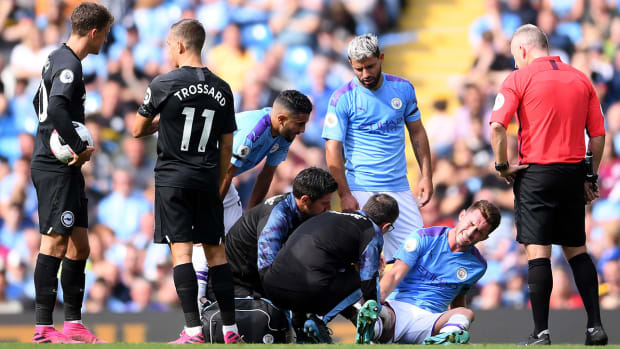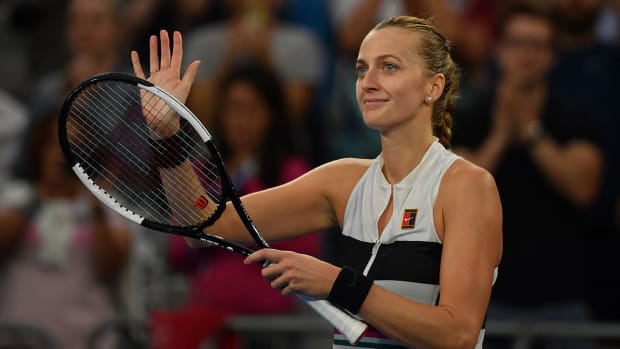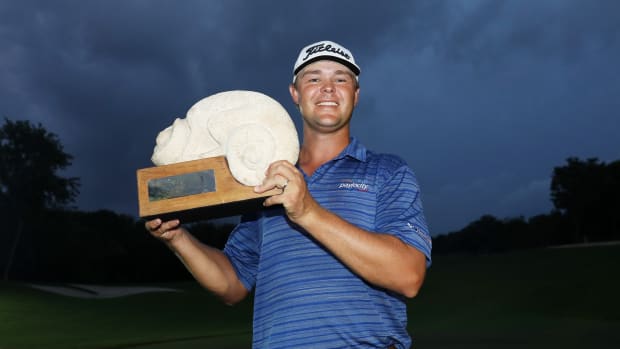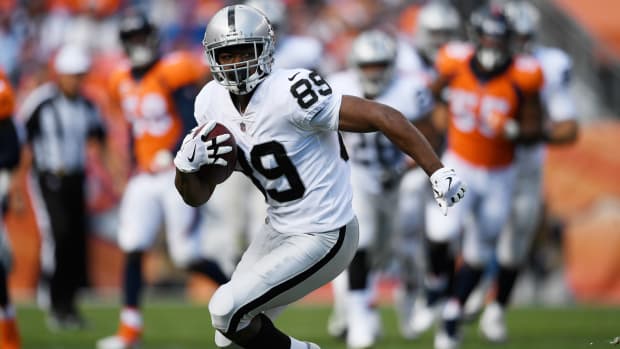Column: The gulag of Russian cheating must be dismantled
GENEVA (AP) As Sebastian Coe weighs the nuclear option of barring Russian athletes from next year's Olympics, the British former middle-distance running great must ask himself: ''Had I been Russian when I was young and full of Olympic ambitions, would I have taken steroids, too?''
Sadly, as we now know from this week's watershed revelations of institutionalized doping and cover-ups in the gulag of Russian sports, the answer may well have been, ''Yes.''
An angle that got lost in the initial wave of shock and calls for Russia to be made a sporting pariah is that Russian athletes are also victims and prisoners of the sick, allegedly state-sanctioned system of cheating that the World Anti-Doping Agency exposed. That might not be a popular argument to make when sympathy for President Vladimir Putin's now embattled sporting powerhouse, the next World Cup host, is at an all-time low. But it is an important one. And a humane one.
Coe's leadership of track and field, as the newly elected president of its governing body since August, will be judged on whether he can succeed in breaking the chains of cheating in Russia so that its future generations aren't snared in them, too. In short, if Coe can't fix it so that youngsters today don't have to become dopers tomorrow, then he's as useless as a Russian drug test.
The unsympathetic view of dopers everywhere is that they only have themselves to blame and that when proffered a needle or pill, they should simply have said, ''No.''
That is also true for Russian dopers, because ultimately they, too, must be accountable for decisions they made and damage they've done to clean competitors. But, from what WADA says, it's also not the whole truth.
WADA's probe found that the choice for Russian athletes often isn't much of a choice at all: either dope or be damned. Simply put: if you were a talented teen in a far-flung training base told to either get with the program or kiss goodbye to hopes of winning for Mother Russia, the seeming likelihood before now was perhaps that no one would hear you scream.
On this point, WADA's investigation was clear:
-''Russian athletes were often willing participants. However, there are documented cases where athletes who did not want to participate in `the program' were informed they would not be considered as part of the federation's national team for competition,'' said its damning 323-page report.
-''An athlete's choice was frequently limited to accepting the prescribed and mandated doping regimen or not being a member of the national team.''
-''Many of the more egregious offenders appear to be coaches who, themselves, were once athletes and who work in connection with medical personnel. This `win at all costs' mentality was then passed to current athletes, whether willing to participate or not. An athlete's decision not to participate is likely to leave him or her without access to top caliber coaches and thus the opportunity to excel.''
-''Coaches wrongfully encouraged their athletes, or athletes chose to believe that all other nations were following similar illicit training methods.''
-Coaches ran interference against drug testers. When doping-control officers turned up unannounced at a notorious race-walking training camp in June this year, ''it was apparent to the DCO that some of the athletes were not acting of their own free will.'' One athlete ''was crying and appeared to the DCO to be `scared.''' Nine of the 15 samples collected subsequently tested positive for the banned blood-booster EPO, WADA's report added.
-Coaches and athletes were instructed not to cooperate with WADA investigators and ''not to sign any documents.''
-An athlete who blew the whistle on doping but later backtracked ''was clearly being coached or even threatened by someone.''
-Aside from whistleblowers, WADA investigators also ''spoke with other Russian athletes to act as potential witnesses but many were simply too frightened for their careers or safety, or did not believe their testimony would change anything.''
In short, it all resembles a picture that Alexandr Solzhenitsyn, the Nobel Prize-winning chronicler of Soviet-era abuses who died in 2008, perhaps would have recognized.
In weighing sanctions, Coe and the IAAF he leads face a dilemma.
A blanket ban from Olympic track and field events in Rio de Janeiro next year would be hurtful to those Russian athletes who don't dope. Coe won his Olympic medals, two 1,500-meter golds and two 800-meter silvers, at the Moscow Games of 1980 and Los Angeles Olympics in 1984 that were both diminished by tit-for-tat boycotts - the first led by the United States, the second by the Soviet Union - when the Cold War raged. It may be that Coe will prove sympathetic to arguments that depriving innocent Russians of an Olympics is unfair, despite mounting pressure for exemplary punishment for them all.
But, ultimately, Coe may also need to be cruel to this generation of Russians to be kind to the next. The sports politician he has become must listen to the inner voice of the racer he once was, a voice that should be reminding him how lucky he was that he was not a young Russian athlete - facing a horrific choice of either doping or dead ambitions.
Only by saving them from this system, can Coe save himself and his presidency.
--
John Leicester is an international sports columnist for The Associated Press. Write to him at jleicester(at)ap.org or follow him at http://twitter.com/johnleicester
